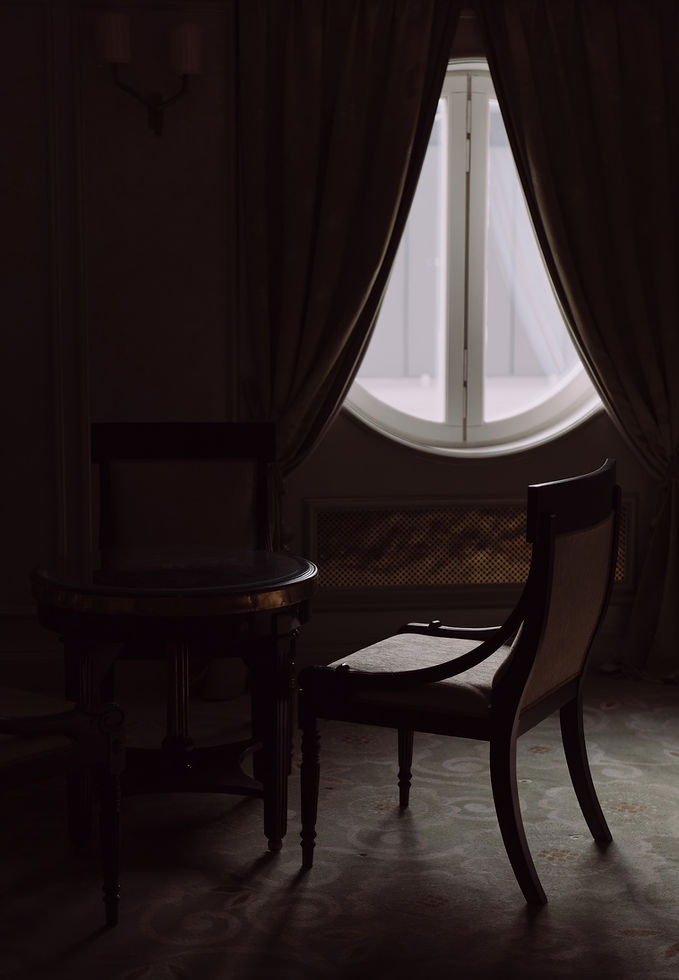
When the Wound Never Heals: Grief, Violence, and the Need for Understanding
- Lyia Meta - My Ink Bleeds

- Oct 17, 2025
- 3 min read
The recent news about the young girl who was stabbed—over 200 times—hit me harder than I expected. It wasn’t just another tragedy on the evening news. It was personal.
My brother was stabbed over 180 times by someone who was having an episode. That kind of loss doesn’t just fade—it reshapes you. In the years since, I’ve tried to make sense of it through my art. I released an album with songs that attempt to capture that pain—the confusion, the silence that follows, and the slow, uneven path toward healing.
Even after all these years, those numbers—180, 200—aren’t just statistics to me. They are symbols of the cruelty the human mind can reach when it breaks. They are reminders of a world where pain is recycled, where grief finds new forms to haunt us.
A friend wrote to me after hearing the news:
“I’m so sorry you have to keep reliving this. Mental illness crosses all borders. This will not end in our generation. Like everything you’ve done in your life, maybe you can reframe it. Maybe use your voice for mental illness change.”
Her words stayed with me.
Because she’s right—mental illness does not care about geography, faith, gender, or privilege. It lives quietly inside homes, behind polite smiles, until one day it explodes into violence, leaving families like mine to gather the pieces of what once was.
Losing my brother the way I did changed everything. It altered how I move through the world.
It has shaped the way I interact with people, how I allow others into my home, my life, my trust. I tread cautiously—sometimes too cautiously. I read rooms like battlefields, always watching for the signs: the flicker in someone’s tone, the sudden silence that feels too heavy. I live in awareness, not fear, but awareness can be exhausting.
And yet, I know that retreat is not the answer. Silence helps no one.
So perhaps my friend is right. Perhaps the only way to transform the pain is to reframe it—to turn grief into advocacy, to use what broke me as a tool to heal others.
We talk about violence as if it’s an isolated act. But behind every tragedy is a chain of neglect—unheard cries, untreated illnesses, unseen despair.
What if, instead of reacting in horror after the fact, we learned to listen before the breaking point?
What if compassion, education, and early mental health support became part of our social fabric, not an afterthought?
I don’t have all the answers. I still carry my own shadows.
But I know this: until we begin to look at mental illness as a human issue—not a moral failure or social inconvenience—nothing will change.
And every new story like this one will reopen the old wounds of those who’ve already lived it.
Maybe this is my way of reframing.
Not to forget, but to remember differently.
Not to stop grieving, but to give that grief a purpose.
I didn’t live through the aftermath alone. My mother, my family—we all did. Each of us carries the echoes of that day in different ways.
But maybe now, through our pain, we can help others heal. I’ve been thinking about starting something in my brother’s name—a way to speak up for those silenced by fear, stigma, or illness. Maybe it begins as a conversation, a story, or a shared post—but I hope it becomes a voice that says, you are not alone.
This isn’t just about remembering him. It’s about making sure no one else has to carry what we did, in silence.
For the longest time, I didn’t know how to carry his story without breaking under it.
Now, I think I’ve found a way—something in his name, something that gives others a voice before tragedy steals it.
I’ll share more when the time is right. For now, let’s just say this is the first step.
©️ Lyia Meta





Comments